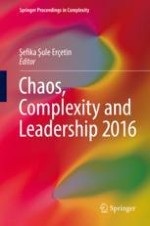2018 | OriginalPaper | Buchkapitel
54. Fuzzy Logic-Based Operational Research Techniques in Educational Administration: A Content Analysis
verfasst von : Zeliha Yaykıran
Erschienen in: Chaos, Complexity and Leadership 2016
Aktivieren Sie unsere intelligente Suche, um passende Fachinhalte oder Patente zu finden.
Wählen Sie Textabschnitte aus um mit Künstlicher Intelligenz passenden Patente zu finden. powered by
Markieren Sie Textabschnitte, um KI-gestützt weitere passende Inhalte zu finden. powered by
